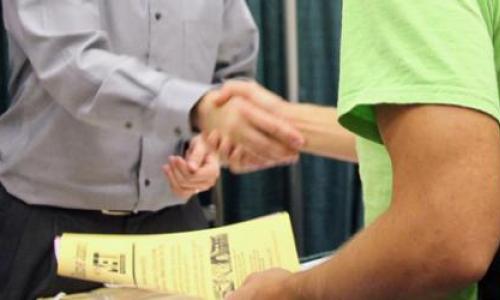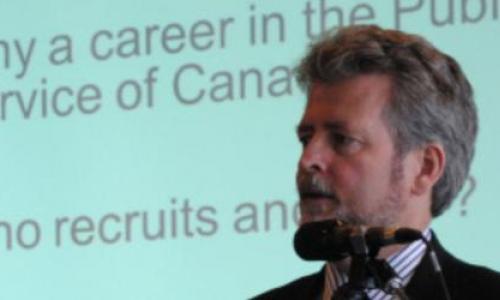
What are interviewers really looking for? Professionalism, Passion and Preparation.
Professionalism
It’s important to show an employer that you are an aspiring professional and this doesn’t just mean wearing a suit. Remember to dress appropriately but you should also use appropriate language during an interview (no “you guys”, “you know” or other slang of that sort) and choose appropriate examples for the behavioural-based questions. For instance, if an employer asks you about a time you showed initiative, maybe describing how you organized a pub crawl for you and your friends is not the best example to give.
Why is professionalism important to an employer? If you are going to be working with the public, then you are representing the organization, and they need to know you will represent them well. Even if you will not be working with the public, the employer wants to know that you can conduct yourself in a mature manner when interacting with your co-workers.
Presenting yourself as a serious, hardworking professional, however, may not be enough to get you the job. You need to show your passion for the position as well.
Passion
You may have all the right answers to the interview questions, but if your interest and passion for the position is not evident, the job may well go to someone else. An employer wants to hire someone who is excited about the opportunity to work at their organization. Enthusiasm and a willingness to learn can go a long way to making up for a deficit in the skills the employer is looking for.
How do you ensure that your enthusiasm and passion for the position do come through? Relate your answers back to the position requirements and description. If the employer tells you that you will need to do presentations as part of your position, then make sure you talk about your background in giving presentations and how much you enjoy giving them (if you do!). To get an idea of how your spoken answers come across, it’s also a good idea to do a mock interview with someone. You may feel that you are being expressive and enthusiastic, but an objective observer may let you know you need to “ramp it up”.
In order to express your passion for the position, you need to know what the organization and the position are all about. And this will involve some preparation on your part.
Preparation
Researching the organization is one of the most important elements in preparing for an interview. Why is it so important? It shows the employer that you are serious about wanting to work for their organization.
Many interview candidates will go to the organization’s website to do their research, and that’s a valuable resource, but there are additional sources that you may want to consult. Ask your Co-op program if they have work reports from students who have worked at the organization previously. This will give you a good understanding of the position and how the position fits into the big picture of the organization’s goals. You can also review the Experience Tool for entries from co-op students who’ve previously done a work term at the organization.
You can also talk to your Co-op coordinator about the organization. Your coordinator has likely gone out to the organization for site visits and will have a good understanding of the position as well. You may also want to google search the name of the organization to get information from other sources beyond the organization’s website.
Make sure once you’ve done all your research that you let the employer know what you’ve done. If you reach the end of the interview and you have not had the opportunity to showcase your preparation when the interviewer asks you if you have any questions for them, you can ask a question starting with “I noticed on your website…” or “I read in a previous Co-op student’s work report…” and then form a question around a piece of information you’ve come across during your research and preparation.
An interviewee who presents themselves professionally shows passion for the position, and who prepares well for the interview is going to be a candidate who is going to be very hard for the interviewer to pass up!















